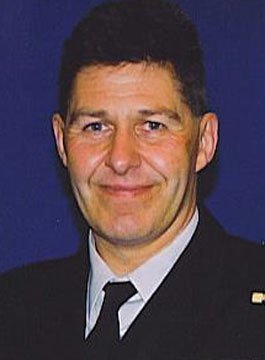Mike Edwards is a practising Trauma and Orthopaedic Surgeon.
He served in the 2003 Gulf War as Surgeon Commander with 34 Field Hospital in Basra.
Mike is also known for his appearances in various TV productions as a Medical Historian and Combat Trauma Surgeon including:
- The Perfect Weapon (Nat Geo)
- Mummy Forensics and Ancient Discoveries (History Channel)
- History of the World (BBC 1)
- Back from the Dead Crusaders (C4)
- The Truth Behind Saving Private Ryan (C5)
Mike has a wide variety of interests including Martial Arts, Battlefield Pathology (past and present), Parachuting, Diving and Archaeology.
He was a member of the SES diving team that discovered a lost sunken city in the Indian Ocean dubbed the Indian Atlantis in 2002.
When war broke out in Iraq in 2003, Mike Edwards was called up to serve as a trauma surgeon in Basra with HM Forces. Mike is a Royal Marine Reserve Officer and he has also been Commando trained. He knew, therefore, that he’d be leaving the comfort of his life as an orthopaedic surgeon behind.
His Field Surgical Unit and hospital was just a five-minute ride from the centre of Basra. No military hospital has been as close to the front-line since the Battle of The Somme in 1916.
Keynote Speaker:
Mike Edwards shares his belief in what ordinary people can achieve in the most difficult of circumstances.
Mike talks about the lessons he learnt about leadership, motivation, teamwork and good communication when he was called up to work on the front line in Iraq as a trauma and orthopaedic surgeon.
Mike is a natural storyteller and using a wide-range of photographs taken in the desert combat zone, Mike speaks movingly and with remarkable humour about the challenges and difficulties he faced.
At times, he and his team continued to operate on patients in the surgical tent as explosions hit the ground just metres away.
Life in a hospital that was caught in the biggest tank battle since the World War was fairly dramatic, often difficult and frequently stressful. However, Mike’s unwavering belief in what ordinary people can do is one of his key messages (after all, he lead a team of nurses and medical assistants who didn’t expect to be in the front line either). In fact, as Royal Marine Reservists, they expected to be working miles away from where the explosive rounds were landing.
When they lost a satellite dish, Mike Edwards saw first hand what a vital part good communication plays in maintaining morale and focus. The team had to work in tough conditions and yet everyone had to stay motivated, communication between the team had to be excellent, they needed to stay focused on why they were there (to save lives) and somehow, despite the circumstances, they had to maintain some kind of work-life balance. Teamwork was not an optional extra.
Mike knows that it is people that make the difference whether you are a small entrepreneur, an established large organisation or a team of medics facing three and a half thousand admissions in just a matter of weeks. He understands that effective leadership requires that you stand in the other person’s shoes for a moment and try to understand their perspective before acting.
Mike Edwards shares an extraordinary story about a situation that most of us, thankfully, will never have to face and he emphasizes a message which everyone can relate to: never underestimate people – they are capable of the most incredible acts of compassion, commitment and courage.

